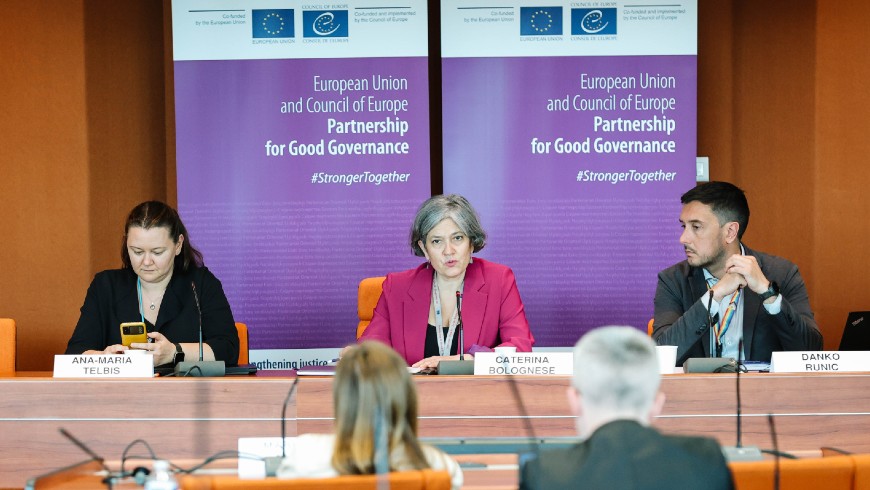The second meeting of the Eastern Partnership Regional Network of judicial training institutions was held on 5 July 2024 in Strasbourg, as part of the HELP Network Annual Conference. The meeting gathered rectors, vice-rectors and heads of international co-operation departments from Eastern Partnership judicial training institutions, joined by representatives of the European Judicial Training Network, the French National School for the Judiciary and the Portuguese Centre for Judicial Studies.
The meeting featured presentations on the network’s key aims agreed during the first meeting in Brussels on 18-19 April 2024. Based on these aims, the network members agreed to take the work further by piloting an event aimed at elevating the level of co-operation and further building trust among stakeholders. Special focus in the work of the network is placed on advancing women’s access to justice and gender mainstreaming in the justice chain.
In her opening remarks, Caterina Bolognese, Head of the Council of Europe Gender Equality Division, reminded that “earlier this year we marked 10 years since the entry into force of the Council of Europe Convention on Preventing and Combating Violence against Women and Domestic Violence, better known as the Istanbul Convention. Over the past 10 years, the Istanbul Convention has guided numerous parties in advancing their legislation and policies in order to prevent and combat violence against women effectively”. She reiterated that Council of Europe continues to be at disposal to the Network to support follow-up steps such as the development of co-operation framework, governance structure and resource mobilisation.
Ana-Maria Telbis, Head a.i. of Justice and Human Rights Training Division of the Council of Europe, emphasised that the HELP Network, to which all the members are part, benefits greatly from such regional and targeted initiatives, which can boost the national partners’ capacities to implement effectively the requirements related to human rights training, including on women’s access to justice and gender mainstreaming. The Human Rights Education for Legal Professionals (HELP) Programme has in its Catalogue several relevant courses that can be used for this purpose and successful examples of strengthening ties through joint training can serve as inspiration.
This activity is part of the European Union and the Council of Europe joint programme “Partnership for Good Governance”, co-funded by the European Union and the Council of Europe, and implemented by the Council of Europe, in the framework of the regional project “Women's Access to Justice: implementing Council of Europe’s gender equality and violence against women standards”.





